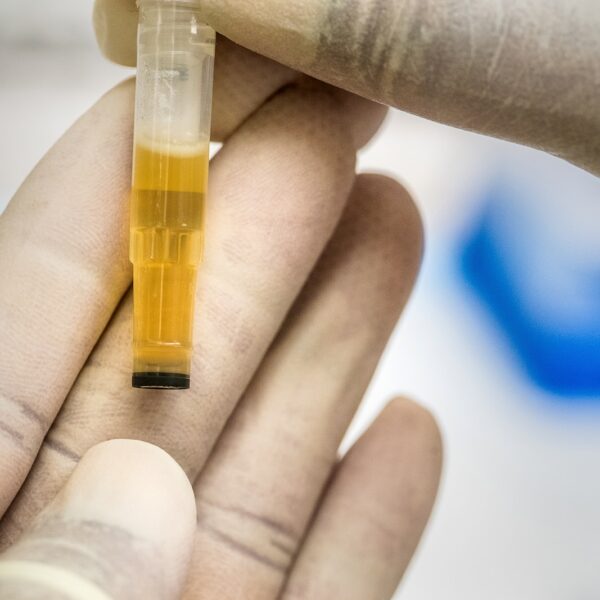Women are often surprised and alarmed when their private area darkens, particularly in patches. However, this change isn’t always dangerous and can happen for many reasons.
It’s important to practice regular vulva self-exams so that you’re familiar with the normal appearance of your genitals. This will help you spot abnormal changes more quickly.
Causes
The skin of the vulva darkens naturally with age. In some cases, the area may become darker as a result of friction or hormonal fluctuations. The skin also gets darker when you are sexually aroused, due to copious blood flow to the genitals. This is perfectly normal and it can be quite fascinating if you take the time to watch with a mirror! However, if the areas around the clitoris or inner lips get too dark and accompanied by other symptoms such as fever, muscle aches, and swollen lymph nodes, then you should seek medical attention immediately.
Black discharge outside of the regular menstrual cycle may indicate that there is a foreign object stuck in the vagina. This could be a forgotten tampon, a sex toy, or even contraceptive devices like sponges, rings, and diaphragms. In these instances, you will need to see your doctor as they will be able to safely remove the object.
Some women who have very fair skin may notice their vulva becoming darker over time. This is a natural process called hyperpigmentation and it usually isn’t a cause for concern. Women who want to lighten their vulva can drink lots of water and eat a healthy diet rich in vitamin C, which has natural skin lightening properties. Additionally, they can use a safe vaginal lightening cream such as Bodywise Intimate CareKojic Acid Serum, which contains 2% niacinamide and kojic acid to effectively reduce pigmentation in the intimate areas.
Treatment
Having black spots in the vagina or vulva isn’t a big deal for most women, especially when it’s a part of the natural process. However, if the discoloration is sudden or accompanied by other symptoms, it’s important to seek medical attention to rule out any serious conditions that could be the cause.
In some cases, black discharge is the result of a foreign object being stuck in the vagina. This can occur if you forget to remove your tampon at the end of your period, or if you have an object like a condom or contraceptive device (like sponges or diaphragms) that has been left behind. In very rare instances, a black spot in the vulva or vagina can be a sign of cervical cancer.
Black discharge can also be a sign of an infection in the pelvic area such as Pelvic Inflammatory Disease (PID), which occurs when untreated sexually transmitted infections such as gonorrhea or chlamydia cause inflammation. If the discharge has a foul smell or is accompanied by other symptoms, visit your doctor.
Many women are looking for natural ways to lighten their private areas. Vaginal bleaching creams that contain sandalwood, turmeric and other skin lightening agents may help reduce discoloration in the intimate area. Using these products is safe and effective as long as you follow the instructions carefully.
Prevention
Even the palest women have darker labia and vulva than their normal skin tone. This is due to the cellular makeup of these areas, which contains more melanin and chromophores than other parts of the body. In most cases, this is not a cause for concern.
However, there are times when black vaginal discharge is a sign of something more serious. For instance, if the dark fluid is accompanied by a foul odor and spotting or bleeding that occurs outside your regular menstrual cycle, see your doctor. This may be a sign of pelvic inflammatory disease (PID), a condition that can lead to serious complications including infertility.
There are preventive measures you can take to avoid the darkening of your vulva. For example, using a non-scented intimate wash that is pH balanced can help maintain your skin’s natural ph level. Additionally, eating a diet rich in Vitamin C can help lighten the skin. This vitamin is found in a variety of foods, including citrus fruits and leafy vegetables.
You should also be careful not to over-exfoliate or use harsh soaps or detergents in your vulva area. You can also try wearing loose-fitting clothes, as this can reduce friction against the sensitive areas. Finally, you can use intimate lightening products containing safe and natural ingredients to whiten the skin of your vulva and labia. These products are usually free of bleaching agents, chemicals and metals that can irritate your vulva.
Diagnosis
The vulva typically has skin that can range in color from pink to brown, depending on your body’s pigmentation. So, it can be easy to confuse a dark spot with the natural tone of your vulva. To prevent this confusion, be sure to become familiar with the normal pigment of your vulva and vagina and do regular self-exams. This will help you recognize changes that may require a medical evaluation.
If you see a black spot or discharge, it’s important to seek a medical evaluation as soon as possible. Black vaginal discharge is a symptom of pelvic inflammatory disease (PID), which can occur if untreated sexually transmitted infections like gonorrhea or chlamydia are present. This infection can also cause symptoms like fever, pelvic pain, itching, vaginal discharge with a foul odor, and swelling of the vulva or vulva area.
A bartholin cyst or abscess occurs when the glands that produce lubricant for your vulva and vagina become obstructed. This condition is most commonly associated with sexually transmitted infections, such as gonorrhea and chlamydia. The resulting inflammation is painful and may lead to an infection or toxic shock syndrome (TSS). If you have these symptoms, see your doctor immediately.




Leave a Comment